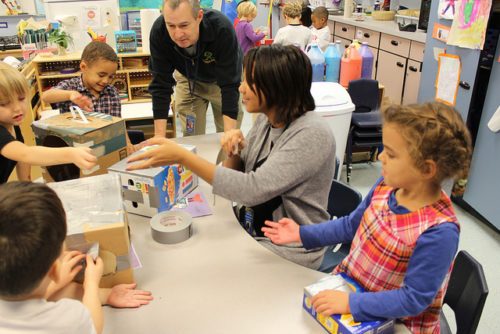SUBSCRIBE TO THE FREE NEWSLETTER
Get Outside! Sun Top Lookout
Are you an experienced snowshoer looking for a challenge? Check current avalanche reports and head out to Sun Top Lookout in Washington’s Mount Baker Snoqualmie National Forest. In this week’s edition of the Get Outside! column at Cascadia Magazine, Craig Romano recommends this 11-mile roundtrip trek to a forest lookout built in 1933. It’s a hearty workout, and you’ll want to be sure be prepared with essential gear and emergency supplies — but the payoff is amazing.
Eye-popping views of Mount Rainer await, as well as snow-draped peaks of the Norse Peaks and Clearwater Wilderness areas.
Check out the full write-up now online at Cascadia Magazine. Read more here.
Online at Cascadia Magazine: Multimedia art by Dao Strom
Portland’s Dao Strom is a fantastically talented artist on many levels. In a new collection of work called “On an Open Field” now online at Cascadia Magazine, Strom combines photos, music, and text in an exploration of what it means to live between the cultures of Vietnam and America. You’ll also find an interview with Strom by Portland journalist and musician Lauren Kershner. Read more here.
New US lands bill protects wilderness across Cascadia
The US Congress shocked nearly everyone by passing (by a wide majority) the biggest land protection bill in over a decade, and it has a big impact on the Pacific Northwest. OPB reports that 30,000 acres of coastal forest in southwest Oregon will be set aside as protected wilderness, and in Washington, mining will be banned in the headwaters of the Methow River. There were also new designations for wild and scenic rivers in Oregon and an extension of a fund that purchases lands for conservation. More on the full bill here.
What it’s like to be homeless in snowy Vancouver
The recent unusually heavy snowstorm across Cascadia hasn’t been fun for the homeless — in first-person account at The Georgia Straight, Stanley Q. Woodvine gives a blow-by-blow account of what it’s like. “Now I just wonder when it will all go away.” KUOW reports on how city officials in Seattle are trying to get people into shelters during the snowtorm, with mixed results. And the Yakima Herald-Tribune reports on how cold temperatures have been hard on ranchers and their cattle.
Seattle passes school levy, but will states boost education funds?
The Seattle Times reports that a Seattle levy on the ballot is passing by a wide margin, increasing funding for the city’s public schools. Meanwhile, Washington’s top education official called on the legislature to change rules that require ballot measures for school funds to be passed by 60 percent –and instead changed to require a simple majority. And the Seattle Review of Books calls on the state legislature to quit slashing funding for school libraries.
Will Oregon stop using herbicide that kills pines?
High Country News has a detailed feature on the controversy over the Oregon Department of Transporation’s use of ACP, a chemical to kill weeds on highways — that ended up killing more than 1,400 ponderosa pines, many of them centuries old. The Oregon Department of Agriculture is considering banning the herbicide. You can find out more about the process here, and you can comment by email to the Dept. of Agriculture about banning the chemical –the deadline for comments is Feb. 26.
Portland filmmaker nominated for Oscar for refugee documentary
Willamette Week has an interview with Skye Fitzgerald, an Oregon-based filmmaker whose short documentary about the tragic refugee crisis off the coast of Libya, Lifeboat, has been nominated for an Academy Award. “Touch the heart, access an issue in a really visceral way, then it moves into the brain through a different path,” says Fitzgerald.
Poetry by Abi Pollokoff
Over at the Seattle Review of Books, you can read Abi Pollokoff’s poem “The Sea Thinks Beyond Itself” online:
“slowskulled & drowsy,
this epitaph’s the one that’s carved
over & over again”
Read the full poem here.
That’s today’s assortment of culture, news, and environmental reporting from across the Cascadia bioregion. See you tomorrow. –Andrew Engelson

